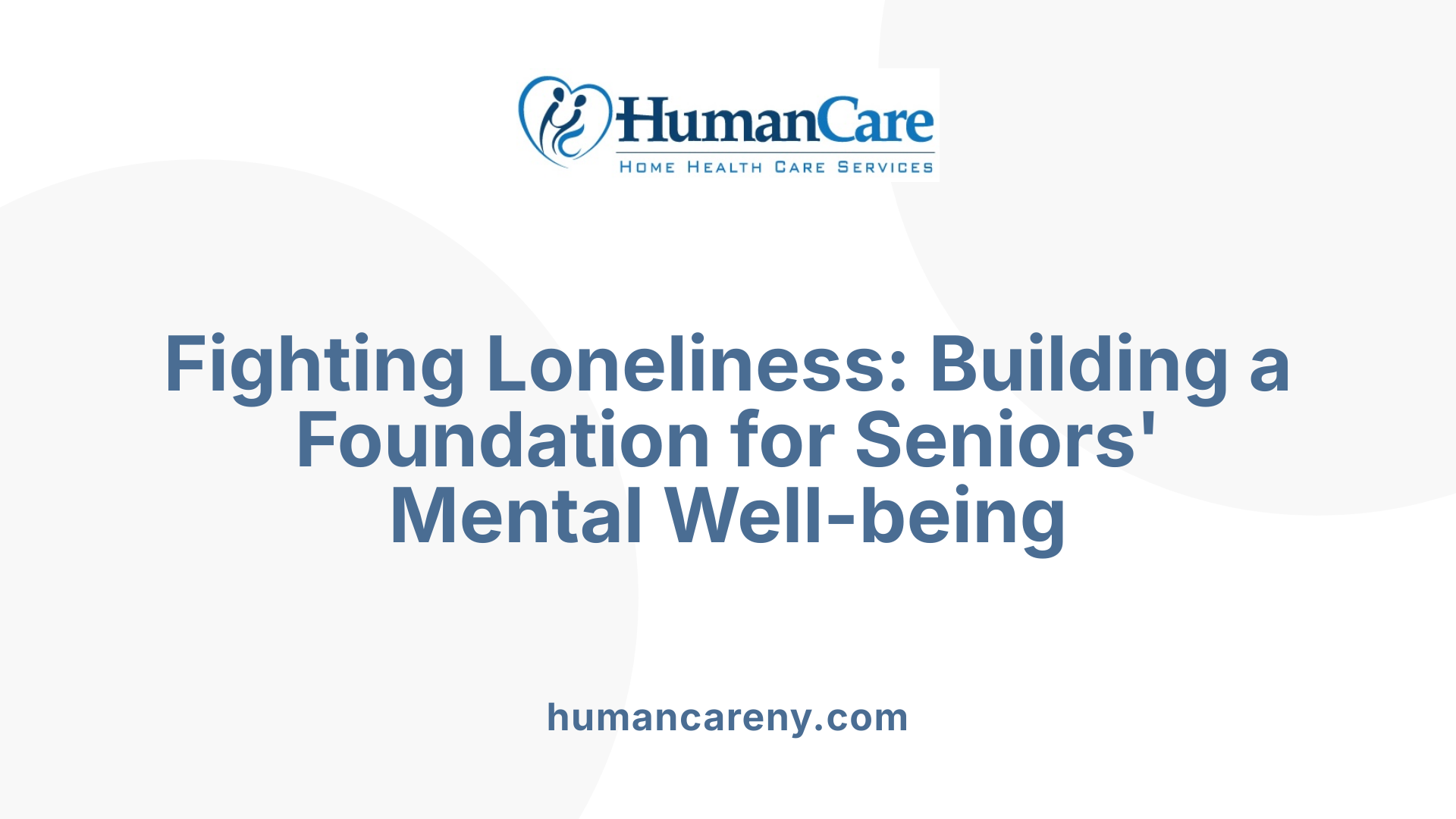Understanding the Impact of Companion Care on Seniors' Mental Wellness
As seniors age, maintaining mental wellness becomes crucial for preserving quality of life. Companion care emerges as an essential service that not only assists with daily activities but also profoundly enhances emotional and cognitive well-being. This article explores how companion care supports seniors in combating loneliness, encourages mental stimulation, and fosters a supportive environment for aging in place.
Combating Loneliness and Social Isolation: A Foundation for Mental Health

How prevalent are loneliness and social isolation among seniors?
Loneliness affects up to one-third of older adults, making it a widespread issue within senior populations. This isolation often leads to reduced social interaction and fewer opportunities for meaningful connection.
What health risks are linked to loneliness in seniors?
Loneliness and social isolation in seniors are associated with several serious health risks. These include an increased chance of stroke, heart disease, high blood pressure, obesity, anxiety, depression, Alzheimer's disease, and even premature death. Prolonged loneliness can be as harmful as smoking 15 cigarettes a day and increases dementia risk by up to 50%.
How does companion care reduce feelings of isolation?
Companion care offers regular social interaction through activities like meaningful conversations, walks, puzzles, games, and shared meals. These visits help seniors feel valued and connected, which reduces loneliness and isolation. Additionally, professional caregivers provide a consistent presence that fosters emotional bonds and encourages open communication, ensuring seniors feel heard and supported.
What emotional support and social connection benefits does companion care provide?
Companion care contributes significantly to seniors' emotional well-being by offering encouragement, cognitive stimulation, and a sense of purpose. Engaging in social and mental activities supported by companions helps maintain brain health and improves mood. Moreover, companion care reduces symptoms of depression and anxiety, helping seniors enjoy a better quality of life. By building trust, companionship also eases stress and motivates seniors to pursue hobbies and community involvement, promoting overall mental health.
Daily Support That Preserves Independence and Dignity

How Does Companion Care Assist with Personal Care and Daily Tasks?
Companion care offers valuable help to seniors by assisting with personal care activities such as bathing, dressing, and grooming. Beyond these tasks, caregivers also support seniors with grocery shopping, meal preparation, and housekeeping. This comprehensive help ensures that seniors can maintain a comfortable and healthy lifestyle without having to leave their homes.
In What Ways Does Companion Care Respect Seniors’ Independence?
While providing necessary assistance, companion caregivers emphasize respect and compassion, which helps seniors retain their dignity. By offering help in a way that encourages seniors to do as much as they can for themselves, companion care fosters independence rather than dependence.
How Does Companion Care Enable Seniors to Age in Place?
Through support with daily household tasks and personal care, companion care allows seniors to safely remain in their own homes, an option many prefer. This in-home assistance reduces the need for moving to care facilities and promotes a sense of familiarity and comfort.
What is the Impact of Companion Care on Seniors' Emotional Well-Being?
Regular social interaction from companion care reduces loneliness and isolation, which are common concerns for older adults. The emotional support and encouragement offered by caregivers improve mood, reduce symptoms of anxiety and depression, and foster a positive outlook on life. Moreover, consistent companionship offers seniors a sense of purpose and routine, further enhancing their overall well-being.
| Support Area | Description | Emotional Impact |
|---|---|---|
| Personal Care Assistance | Help with bathing, dressing, grooming | Maintains dignity and encourages independence |
| Household Support | Grocery shopping, meal prep, housekeeping | Enables aging in place and reduces stress |
| Emotional Companionship | Meaningful conversations, encouragement | Decreases loneliness, anxiety, and depression |
| Routine and Social Connection | Regular visits and activities | Provides a sense of purpose and enhances quality of life |
Enhancing Cognitive Function and Emotional Well-being Through Engagement

How Does Companion Care Help Prevent Cognitive Decline in Seniors?
Engaging seniors in mental stimulation activities such as puzzles, games, and crafts is an important aspect of companion care. These activities help maintain brain health and can prevent or slow cognitive decline. Studies indicate that seniors who experience frequent social interaction have a 70% lower prevalence of cognitive decline compared to those who are socially isolated.
What Types of Activities Are Involved?
Companion caregivers often encourage participation in meaningful activities that stimulate the mind and foster social interaction. This includes:
- Playing puzzles and memory games
- Engaging in crafts or creative projects
- Taking part in social games or group activities
- Sharing conversation and walks
These activities not only keep the mind active but also evoke positive emotions and a sense of accomplishment.
How Do Arts and Creative Activities Benefit Seniors?
Arts and creative pursuits supported by companion care have been shown to improve cognitive function and memory. They also boost self-esteem and provide emotional fulfillment. Engaging in these activities can create moments of joy and connection, which contribute to overall mental well-being.
Can Companion Care Reduce Symptoms of Depression and Anxiety?
Yes, companion care offers emotional support and social engagement, which are crucial in improving a senior’s outlook on life. Regular meaningful interaction helps reduce feelings of loneliness, which are closely linked to depression and anxiety. Through encouragement, companionship, and shared activities, seniors often experience improved mood and decreased anxiety levels.
By combining cognitive stimulation with emotional support, companion care plays a vital role in enhancing the mental health and quality of life for older adults.
Building Trust and Meaningful Relationships with Companion Caregivers

Emotional Bonds and Open Communication
Companion caregivers often develop close emotional bonds with the seniors they support. These connections encourage open and honest communication, allowing seniors to express their feelings and concerns freely in a comfortable, nonjudgmental environment. Such trust is fundamental in addressing emotional needs and fostering a sense of companionship that goes beyond simple assistance.
Regular Social Interaction Fostering a Sense of Purpose
Consistent social interaction through companion care offers seniors a structured routine and meaningful engagement. Activities like shared meals, walks, games, or community events build a purposeful daily rhythm. This sense of purpose boosts seniors' self-esteem, mental well-being, and helps reduce feelings of loneliness and isolation.
Companions as Observers of Early Health or Safety Issues
Companion caregivers serve as attentive observers who can notice subtle changes in a senior's behavior, health, or safety environment. Early detection of these signs often leads to timely intervention, preventing potential health complications and enhancing overall safety. This role adds an important layer of security for seniors aging in place.
Positive Influence of Consistent Social Connections
The consistent presence of a companion improves seniors' overall quality of life by providing emotional support, cognitive engagement, and encouragement. Regular social contact decreases the risk of depression, anxiety, and cognitive decline, contributing to better mental and physical health outcomes. Through these steady relationships, seniors feel valued, heard, and connected, which profoundly influences their wellness and happiness.
Supporting Family Caregivers and the Larger Support Network
How Does Companion Care Provide Respite and Emotional Relief for Family Caregivers?
Companion care offers family caregivers much-needed respite by reliably stepping in to provide social interaction, daily assistance, and monitoring for seniors. This relief allows family members to take breaks and reduce anxiety related to caregiving responsibilities. Knowing that a professional companion is present gives family caregivers peace of mind and emotional support, helping to lessen their burden.
In What Ways Does Companion Care Help Reduce Caregiver Stress and Burnout?
By sharing caregiving duties, companion care services prevent family caregiver exhaustion. Professional companions manage routine tasks and provide meaningful social engagement for seniors, which reduces the physical and emotional demands on family members. This teamwork approach diminishes caregiver stress and lowers the risks of burnout, improving overall family dynamics.
What Are the Collaborative Benefits for Seniors' Mental Health?
Collaborative caregiving where family, professional companions, and community supports work together creates a robust environment for senior mental wellness. Companion care enhances seniors’ emotional support and social connections, while family involvement adds motivation and emotional stability. This combined effort promotes happiness, cognitive health, and reduces risks associated with loneliness such as depression and anxiety.
How Does Companion Care Encourage Family Involvement and Community Connection?
Companion care fosters family engagement by providing structured support that enables family members to participate in social and recreational activities with the senior. Additionally, companions encourage seniors to remain active in their community and cultural programs, strengthening bonds beyond the home. This engagement nurtures a broader support network, enhancing quality of life for seniors and their families.
Choosing and Integrating Companion Care Services for Optimal Results

Factors in Selecting Companion Care Providers
When choosing companion care services, several important factors come into play. Consider the variety of services offered, such as emotional support, assistance with daily activities, and mental engagement. Cost and accessibility are also critical, alongside the qualifications and experience of caregivers. Reading client reviews can provide valuable insight into the quality and reliability of the provider. These elements collectively ensure the companion care aligns with a senior’s specific needs and lifestyle.
Professional Versus Volunteer Companion Options
Seniors and their families can choose between professional and volunteer companion care. Professional services, like those offered by companies such as Care, Visiting Angels, and Papa Pals, provide trained caregivers who bring consistency and specialized expertise. Volunteer programs, including Elder Helpers and AmeriCorps, offer companionship often driven by community spirit, which can be a more affordable alternative. Both options play vital roles in supporting seniors but differ in levels of formality and scope of services.
Role of Companion Care in Broader Senior Care Strategies
Companion care serves as a critical component within a broader senior care plan. It complements medical and physical care by focusing on emotional and social needs, reducing loneliness and isolation. By encouraging mental stimulation, engaging in hobbies, and promoting social participation, companion care helps seniors maintain independence and mental health. Integration with family involvement and other social activities maximizes benefits, offering seniors a well-rounded, supportive environment.
Benefits of Consistent, Personalized Companion Care
Regular, personalized companionship creates a trusting bond that enhances seniors’ feelings of being valued and understood. Consistent interaction helps improve mood, reduce symptoms of depression and anxiety, and encourage physical activity and cognitive engagement. Tailored activities—ranging from games and creative crafts to walks and shared meals—boost mental wellness and provide purpose and routine, ultimately improving overall quality of life for older adults.
Fostering Senior Mental Wellness Through Compassionate Companion Care
Companion care stands as a transformative resource in enhancing senior mental wellness by alleviating loneliness, encouraging meaningful interaction, and supporting daily independence. By fostering emotional bonds and providing mental stimulation, companion care not only elevates the quality of life for older adults but also offers vital support to family caregivers. Integrating professional companion care services thoughtfully ensures seniors remain connected, engaged, and valued as they age in place.
References
- The Unbeatable Benefits of Companion Care for Seniors
- Companion Care & Senior Mental Health: NYC Benefits
- What are the Psychological Benefits of Companion Care ...
- Companion Care Services & Their Benefits for the Elderly
- The Emotional Benefits of Companion Care for Seniors
- The Role of Companionship in Senior Mental Health



